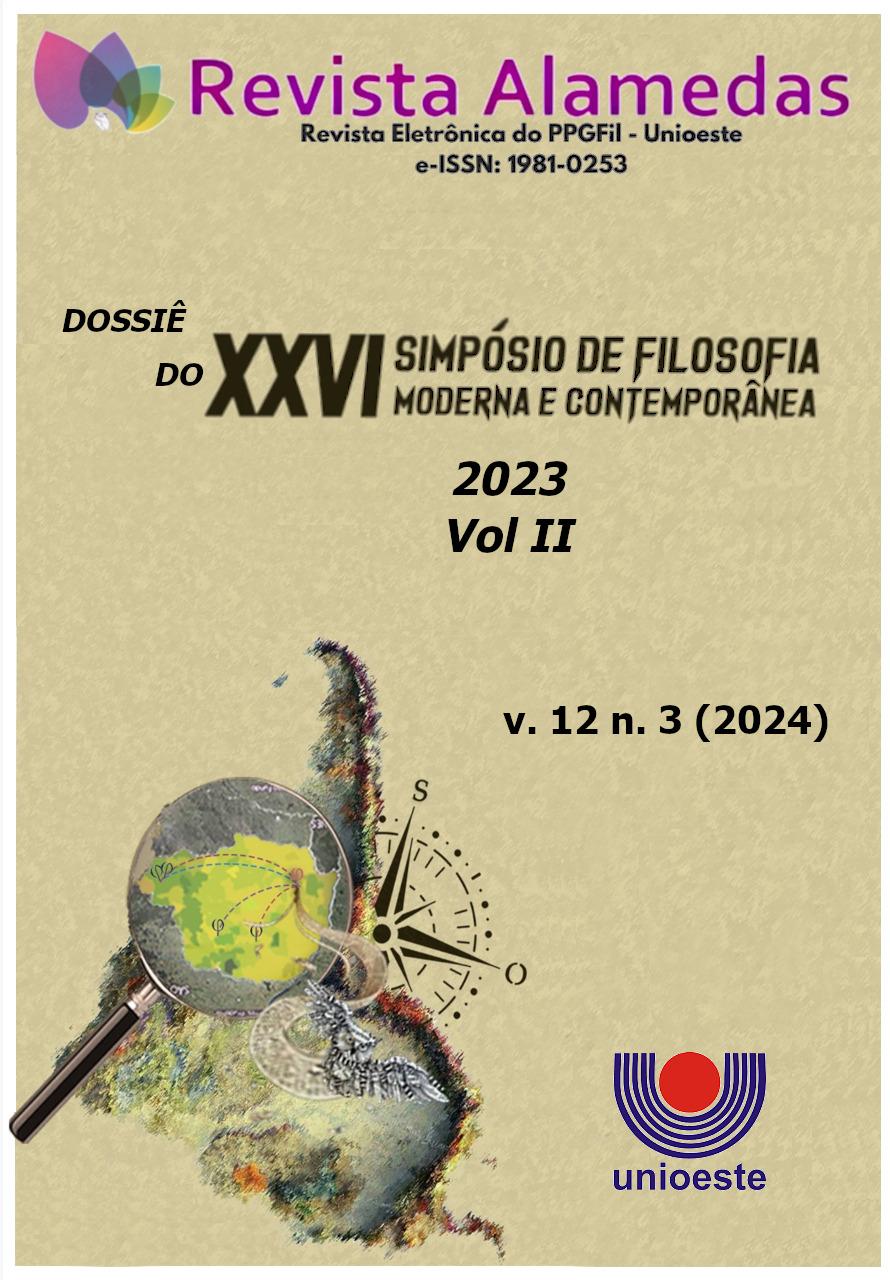O pensiero debole de Gianni Vattimo e Pier Aldo Rovatti
DOI:
https://doi.org/10.48075/ra.v12i3.33066Keywords:
Pensiero debole, Gianni Vattimo, Pier Aldo Rovatti, Filosofia ContemporâneaAbstract
We propose a study of the concept of pensiero debole, proposed by Gianni Vattimo and Pier Aldo Rovatti, taken as a notion of contemporary philosophical thought that has attracted significant attention. This conceptual mode challenges the traditional foundations of philosophical thought and seeks to undermine the notion of absolute truth. Starting from the work "Il pensiero debole", specifically "Premessa", written by Vattimo and Rovatti (2011), we investigate how that notion emphasizes the ambiguity and uncertainty inherent in human existence, and how the authors argue that our understanding of reality always depends on our subjective perspectives and interpretations. By embracing this outlook, pensiero debole opens new possibilities for dialog and pluralism in philosophical discourse - in other words, it establishes new ground for contemporary philosophical intellectual exploration. In recent decades, the discussion around the "crisis of reason" has gained great prominence in Italian philosophical culture. This debate has revealed that there is no longer a comprehensive narrative of history, as well as no universal knowledge that can unify specific knowledge into a supposedly "true" understanding of the world. However, there have been cases in which new and limited forms of rationality have been hastily established, marking unlikely "returns" to traditional values. Based on this premise, here we seek to delve deeper into this issue, using the idea (or concept) of "pensiero debole" (weak thinking) presented by Vattimo and Rovatti (2011). In "Il pensiero debole", several voices, even from different disciplinary fields that may not align, propose a more radical approach: and so, what is provisionally referred to as "weak thinking" aims to break down the persistent resistance of entrenched notions of reason. This is why, at this point, we are referring specifically to the analysis of the book's "Premessa", a text that is still untranslated for the Brazilian publishing market, in order to delve deeper into the way in which the authors construct a contemporary philosophical way of thinking: the understanding of a more fluid, precise and acceptable concept of truth, which can only happen if we free ourselves from the remnants of modern rationalism. According to the philosophers, this alternative perspective of thought may be less comforting, but it certainly brings us closer to the current reality and, consequently, offers greater practicality.
Downloads
Published
How to Cite
Issue
Section
License
Copyright (c) 2024 Alamedas

This work is licensed under a Creative Commons Attribution-NonCommercial-ShareAlike 4.0 International License.
Aviso de Direito Autoral Creative Commons
Política para Periódicos de Acesso Livre
Autores que publicam nesta revista concordam com os seguintes termos:
1. Autores mantém os direitos autorais e concedem à revista o direito de primeira publicação, com o trabalho simultaneamente licenciado sob a Licença Creative Commons Attribution que permite o compartilhamento do trabalho com reconhecimento da autoria e publicação inicial nesta revista.2. Autores têm autorização para assumir contratos adicionais separadamente, para distribuição não-exclusiva da versão do trabalho publicada nesta revista (ex.: publicar em repositório institucional ou como capítulo de livro), com reconhecimento de autoria e publicação inicial nesta revista.
3. Autores têm permissão e são estimulados a publicar e distribuir seu trabalho online (ex.: em repositórios institucionais ou na sua página pessoal) a qualquer ponto antes ou durante o processo editorial, já que isso pode gerar alterações produtivas, bem como aumentar o impacto e a citação do trabalho publicado (Veja O Efeito do Acesso Livre).
Licença Creative Commons
Esta obra está licenciada com uma Licença Creative Commons Atribuição-NãoComercial-CompartilhaIgual 4.0 Internacional, o que permite compartilhar, copiar, distribuir, exibir, reproduzir, a totalidade ou partes desde que não tenha objetivo comercial e sejam citados os autores e a fonte.


